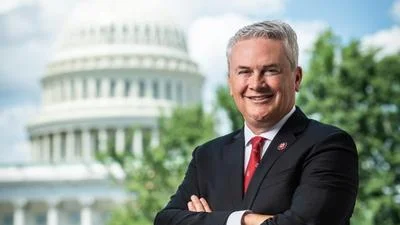Washington, D.C. -Today, Rep. Carolyn B. Maloney, Chairwoman of the Committee on Oversight and Reform, held a hearing with FEMA Administrator Deanne Criswell on recovery efforts following Hurricane Ida, as well as the need to invest in climate resilience efforts to mitigate future disasters, especially for frontline communities. The hearing highlighted that extreme weather events are becoming more frequent and catastrophic, driven by climate change.
“From record-breaking fires in the West, to devastating hurricanes in the South, to rising sea levels that threaten 40 percent of America’s population near our coastlines, the destructive impact of climate change is rapidly escalating. Congress also must act," said Chairwoman Maloney in her opening statement. “Today, I introduced the Federal Agency Climate PREP Act. This bill will ensure that communities have a say in how federal agencies implement their Climate Action Plans, which is critical in making sure our taxpayer dollars are put to work where they are most needed."
The hearing addressed the following key points:
Extreme weather events like Hurricane Ida are becoming more frequent and catastrophic, with nearly one in three Americans living in a county hit by a weather disaster in the past three months of 2021.
* Administrator Criswell testified: “Climate change affects every single American. It is the biggest crisis facing our nation, and it is making natural disasters more frequent, more intense, and more destructive. Mitigating the effects of climate change is one of my top priorities for FEMA. Hurricane Ida has demonstrated the challenges presented by our changing climate, the benefits of mitigation investments, and the importance of equity in our response and recovery."
* In response to questioning from Chairwoman Maloney, Administrator Criswell committed to work with communities to update flood maps to better reflect local limitations such as stormwater drainage systems, saying, “Chairwoman Maloney, the flood maps are community maps, and we will work with all communities to help updating their maps with the information they have available so we can make them more accurate."
FEMA Administrator Criswell and Committee Members underscored how climate change disproportionately affects vulnerable communities and the need to implement an environmental justice strategy to improve equity in disaster recovery.
* In response to a question from Rep. Hank Johnson about FEMA’s efforts to address challenges for historically marginalized communities with proving homeownership, Administrator Criswell stated: “What we have done is we have changed and expanded quite significantly the types of documentation that we will accept from individuals to prove home ownership or even to prove occupancy. That can range from paying your tax bill to your utility bills, a statement from your landlord in a mobile home community-a wide variety of types of documents that can be accepted now."
* The FEMA Administrator also testified that if homeowners are initially unable to qualify through FEMA’s online system because they lack documentation, “we will still send a building inspector to them personally and if they can see the type of documentation upon arrival, then they’ll just check that off in the system." Administrator Criswell stated that following Hurricane Ida, this change has dramatically reduced the number of people who have had to appeal their assistance claims.
Last week, Congress provided more than $28 billion in urgently needed disaster assistance following Hurricane Ida-over the opposition of 175 House Republicans. At the hearing, Committee Members underscored the need to pass the Build Back Better Act to make long-term investments in our electric grid and climate-resilient infrastructure.
* Rep. Gerry Connolly asked Administrator Criswell what would have happened if Congress had not passed the $28 billion in emergency funding. The FEMA Administrator responded, “You know any disruption in funding to our mission would certainly have an impact on our ability to protect the lives of people that are faced by disasters."
* In response to questioning from Rep. Jamie Raskin, Administrator Criswell testified,
“Congressman, I think that we have a shared responsibility to help ensure that we are protecting our nation from the risk of future events so our children and grandchildren and future generations will not have to go through what we’re going through now. Disasters don’t discriminate where they’re going to land. They’re not red or blue. And we have a shared responsibility to work together to make sure that we have the environment that we need to support our future generations."
The FEMA Administrator underscored the Biden Administration’s tireless work to ensure that disaster aid gets to individuals more quickly and ensure mitigation funds go to frontline communities who face greater obstacles to apply for and receive grants.
* In response to questioning from Rep. Troy Carter, Administrator Criswell testified that FEMA made changes to the criteria for Louisiana residents seeking Critical Needs Assistance: “[W]e did go back and take a look at what we were using as criteria to approve those for Critical Needs Assistance, and we were able to give funding to an additional 120,000 families. We are now taking a look at our systems to see if there’s anything else we can do to improve that moving forward, as we’re always trying to improve the delivery of our services to help give money to those that are eligible for it."








